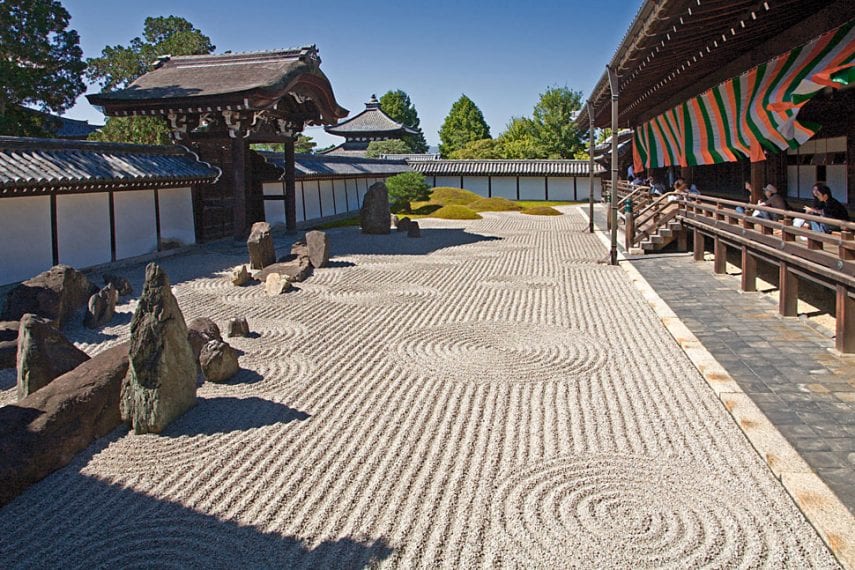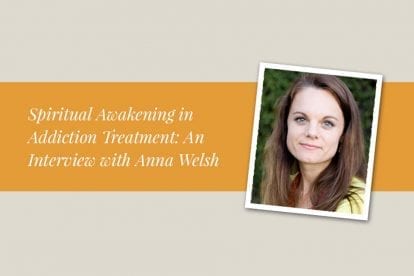Find Your Flow: Spirituality in Recovery

You’re about to enter treatment, and everyone around you is talking about the importance of spirituality to your recovery. Spirituality. It’s not something you’ve thought much about.
You’ve heard some of your friends in recovery talk about spirituality–they’ve talked about both specific religious beliefs and a general belief in a higher power or nature.
You can see how it helped them, but you’re having trouble wrapping your head around this nebulous concept, and you’re afraid it will negatively impact your recovery.
What Is Spirituality?
Spirituality is a broad concept with room for interpretation. At its most basic level, spirituality provides a sense of connectedness to something beyond ourselves. Christina Puchalski, a leader in spirituality and health research, describes it as “the aspect of humanity that refers to the way individuals seek and express meaning and purpose and the way they experience their connectedness to the moment, to self, to others, to nature, and to the significant or sacred.” Through this connection, you will begin to discover what is meaningful in your life. This will help you build a positive self-image and inspire you to make decisions that bolster that image.
Hope is Just a Phone Call Away
866-922-1350Path to spirituality
Spiritual experiences can come in many forms, and have far-reaching benefits. Mihaly Csikszentmihalyi, a researcher on happiness and creativity, has studied the benefits of activities, from religion to sports, that provide an individual with a deep sense of joy, creativity, and oneness with life. He calls this the flow experience. Research by Csikszentmihalyi suggests that people who have these experiences on a regular basis have more positive experiences and more meaningful lives than people who do not have flow experiences. Therefore, finding your spirituality won’t just help you with your recovery, it will help with all aspects of your life.
There are many paths to spirituality: yoga, meditation, lectures, workshops, and one-on-one sessions. Yoga and meditation can help you reconnect with your body, change how you react to extreme emotions, and, hopefully, provide you with your first flow experience; lectures and workshops are designed to help you find meaning in life and develop a recovery statement; and one-on-one sessions aid you in exploring your own brand of spirituality. All you need to do is engage in the process, and you’ll be amazed at what spirituality can do for you and your recovery.
What spirituality can do for you
A recent study examining secular, spiritual, and religious pathways of long-term recovery showed that these pathways provided participants with the tools to live more meaningful lives through reconstructing their identity, helping others, and embracing a recovery-positive identity.
For many participants, reconstructing their identity helped them deal with their past so they could move forward. As one participant explained,
“I began to heal on the inside from the emotional scarring and the damage that had been done emotionally as a child by learning to forgive and to let go and put those people into God’s hands and not my own.”
However, spiritual growth wasn’t confined to religious participants. Those finding spirituality through different avenues were also able to reconstruct their identities:
“After the third month of abstinence, I got it. I understood that this is the way I need to live my life in order to be effective, and that allows me to be proud of how I live. Living this life, there is far less depression and I feel considerable accomplishment that I’ve done this. I’m now on month 400 or so.”
Through their spiritual journeys, participants learned the importance of helping others. and it became crucial to their recovery. One participant felt responsible for providing a positive example to his African American community. He felt that God had tasked him with the responsibility to stay sober so he could bring people from his community, suffering from addiction, into the support group that had helped him.
A recovery-positive identity was also important for spiritual growth and sustaining recovery:
“I’m pretty open now about the fact that I’m in recovery. Sometimes people do have a negative reaction to it but it doesn’t bother me anymore. Some people can’t risk sharing that they are in recovery. My whole life, my whole world, my career, everything I am, my soul’s journey is all about recovery—so I’m not at risk…I have come to see that the answers for me lie within.”
We're Here to Help. Call Today!
866-922-1350Find Your Flow
The most important thing to remember about spirituality and your recovery is that you have to be patient. Engage with the process. Ask questions and do your homework. Take the time to explore your spirituality and find your flow.





